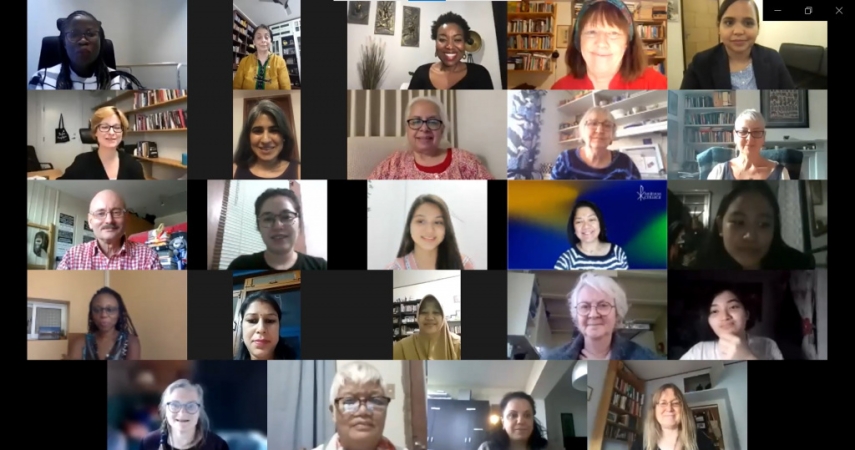International Women’s Day Webinar on Gender Awareness in Journalism
International Women’s Day 2021
Discussion on marginalization and stereotypes: how to build gender awareness among journalism educators
by Yanni Roxas
In commemoration of the International Women’s Day 2021, the International Association of Women in Radio and Television (IAWRT) together with the Journalism and Media International Center (JMIC) Oslo organized and hosted a webinar themed: Marginalization and stereotypes: How to build gender awareness among journalism educators. The webinar attracted close to 100 participants that included women experts on journalism education and research from different countries around the globe who explored the diverse challenges driven by stereotypes against women. Over 200 people viewed the event on Facebook. The March 8th webinar also marked the launch of a special issue of the Journalism Education journal.
Elisabeth Eide, Professor Emerita of JMIC/OsloMet moderated the event while Violet Gonda, president of IAWRT, did the opening remarks. Giving the introduction was Gita Bamezai, Professor and former Head of Communication Research at the India Institute of Mass Communication.
The panelists who shed light on the situation of women in media in their own countries were Samiksha Koirala, Lecturer, Nepal Open University; Florence Namasinga Selnes, Postdoctoral Fellow, Uganda/Norway; Karen Ross, Professor of Gender and Media, Newcastle University, UK; Hani Yousuf, Journalist and Writer, Maldives; and Greta Gober, Postdoctoral Fellow at the Department of Media Studies, Stockholm University and IAWRT Vice President, Poland/Sweden.
The speakers highlighted such issues as the representation and participation of women in media, gender perspective in education, gender equality or parity, marginalization of women in the newsroom, intersectionality, and stereotyped ideas, beliefs and media representation of women in general.
All were unanimous in saying that though some changes or improvements were noted the progress is still slow and more needs to be done.
Suggestions to solve the issues of women in media included more representation of women in higher positions or in “serious” beats, taking gender equality seriously, translating research into workable data, ensuring critical thinking and gender-focused programs in journalism schools, and fighting against backlashes on women’s gains.
Also mentioned were the coverage of women during the Covid pandemic and the impact of social media or digital landscape on women journalists.
Some useful resources were also introduced such as the special issue on gender and journalism education of Journalism Education journal; IAWRT’s What if…? Safety Handbook for Women Journalists written by Abeer Saady, a renowned media consultant and trainer, war correspondent, and researcher available in English and in Arabic; IAWRT’s Handbook on Working Towards Gender Equality in the Media written by Greta Gober; the Global Media Monitoring Project (GMMP); the AGEMI Online Knowledge Platform; and finally the book Comparing Gender and Media Equality Across the Globe edited by Monika Djerf-Pierre and Maria Edström. All of these resources are open source and available online.
The event was recorded and is available on IAWRT’s Facebook page.








